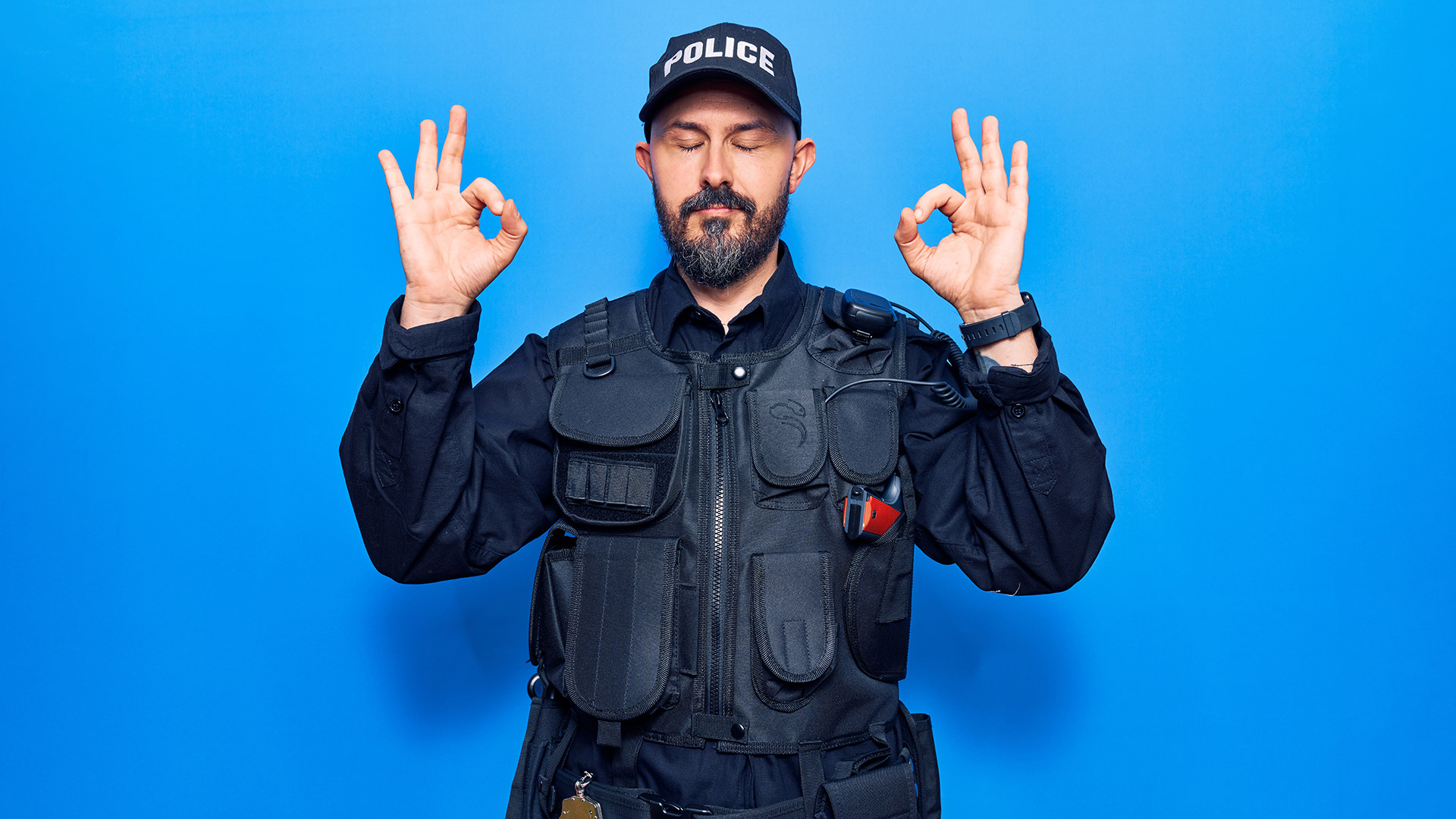[ad_1]

Your heart is tremendously powerful — and the heart is controlled and empowered through effective breathing. The heart influences every aspect of life, including overall health and wellness, resilience, emotions, thinking capacity and clarity, and response to distress.
The daily acute stress and traumas of the police profession decrease your heart’s capacity to perform optimally, causing anxieties, depression, distress and poor decision-making. That’s why it’s crucial for officers to learn how to empower their heart’s effectiveness through mindful breathing of slow, deep breaths.
Power of the heart
The heart has 40% to 60% more electromagnetic energy than the brain and is the most powerful influence on the efficient and effective functioning of the brain, central nervous system, emotions and body. Our heart is responsible for so much more than just pumping blood throughout the body. The heart sends powerful commands throughout the body and the brain that significantly influence thoughts, emotions, responses, stress levels and our capacities to make good decisions and to recover from distressing experiences.
Breathing controls the functions of the heart because there is a direct correlation between breathing and heart rate, with breathing being the greater influence. Therefore, your heart rate, which can induce the “fight or flight” responses, anxieties, distress and unclear thinking, can be directly affected through controlled, mindful breathing techniques.
Breathing as a mindfulness practice
Mindfulness is the basic ability to be fully present, aware of where you are, what you’re feeling and what you’re doing while not being overly reactive or overwhelmed by your experiences. It is your ability, with conscious intention, to make the most of your current opportunities. Being mindful and present enables you to influence your reactions, emotions, inner balance and resilience.
Slow, deep breathing enables mindfulness, causing greater awareness and response ability to distressing experiences. This enhanced mindfulness increases one’s ability to think more clearly, to purposefully calm down, to relax and lessen anxieties, and to focus. Therefore, primary attention to breath regulation is an essential part of the practice of mindfulness — and mindfulness has been shown to increase officer safety, survivability, resilience and well-being.
Relationship between breathing and heart rate
Mindful breathing facilitates the mind’s and heart’s ability to stabilize thought and heart functionality. Rapid, shallow breathing correlates with increased panic, anxieties, irritability and distress because it automatically increases the heart rate (the number of times the heart beats per minute).
Heart rate variability is the fluctuations of the heart in response to stimuli, stress, pressure, frustration or danger. Studies show that the more an officer experiences these emotions, the faster, more variably and more erratically the heart beats. The more erratically your heart beats, the less ability you will have to make good decisions, use good judgment and effectively respond to regain inner balance.
Ideally, your heart rate should be a slow, rhythmic, even wave pattern. That is what is called coherence — the state of optimal performance and emotional stability. Coherence is when your brain, central nervous system, body and heart are all working together for your highest good. When your heart rate is erratic with wild swings of variability, then everything within you is working against you.
Increased coherence enables better internal balance, greater health and new levels of creativity, resilience and productivity. With extended, deep breathing, heart rate variability lessens, resulting in a conscious feeling of calm and centeredness.
Breathing techniques for enhanced coherence
Slow, deep breathing is a scientifically proven way to restore inner balance and enhance coherence. HeartMath is a scientific research institution that has proven the power of mindful, deliberate slow breathing to regulate the heart and improve its effectiveness (see
heartmath.com for more information, training and resources).
Mindful breathing has the following elements: With eyes open or closed, take a very deep, slow breath, inhaling through your nose for a count of four. Hold your breath for as long as you can, then, more slowly, exhale through your lips for a count of six to eight. Continue this for one to two minutes.
When practiced, your heart rate will immediately slow down, your blood pressure will reduce and your heart will recalibrate itself to its optimal rate and functioning. If you are in a place where you are able, practice mindful breathing with your eyes closed while thinking of something that evokes a powerful emotion such as peace, gratitude or love. This will significantly enhance the breathing’s effect with your heart.
When an officer arrives at work, they will have a baseline, relatively calm and coherent heart rate. Studies show that as they respond to stressful calls for service, their heart rate will spike at very elevated and erratic rates. When the call is over, the officer’s heart rate will slow down but will not return to its baseline rate — it will tend to remain beating at an elevated, more erratic baseline rate. After experiencing another stressful call, the heart rate will settle at a third and even higher base rate, and so on.
The mindful breathing of deep, slow breaths for even just one minute will tend to recalibrate the heart and get the heart rate back down to its original, calm, inner balance baseline. Mindful breathing after every call for service is the surest way to maintain optimal performance, inner balance, peace and resilience.
Conclusion
Our powerful heart controls everything regarding maintaining optimal health and resilience. The daily practice of mindful breathing will enable your heart to consistently work for your highest good.
As seen in the March 2024 issue of American Police Beat magazine.
Don’t miss out on another issue today! Click below:
[ad_2]




